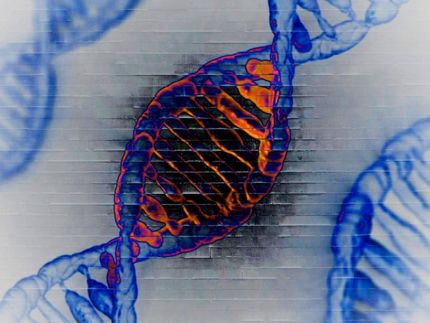Major breakthrough identifies new mechanism for the development of schizophrenia
Scientists from Trinity College Dublin and the Royal College of Surgeons in Ireland (RCSI) have discovered that abnormalities of blood vessels in the brain may play a major role in the development of schizophrenia, a debilitating condition that affects around 1% of people in Ireland.
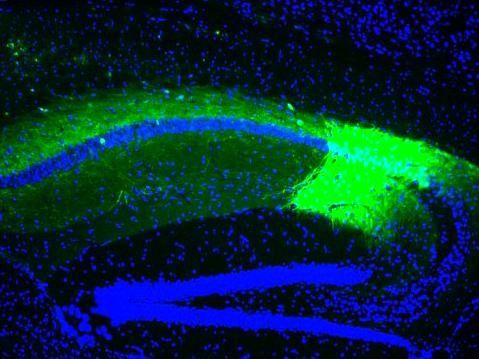
This is a mouse hippocampus injected with adeno-associated virus (AAV) expressing green fluorescent protein.
Dr Matthew Campbell, Trinity College Dublin.
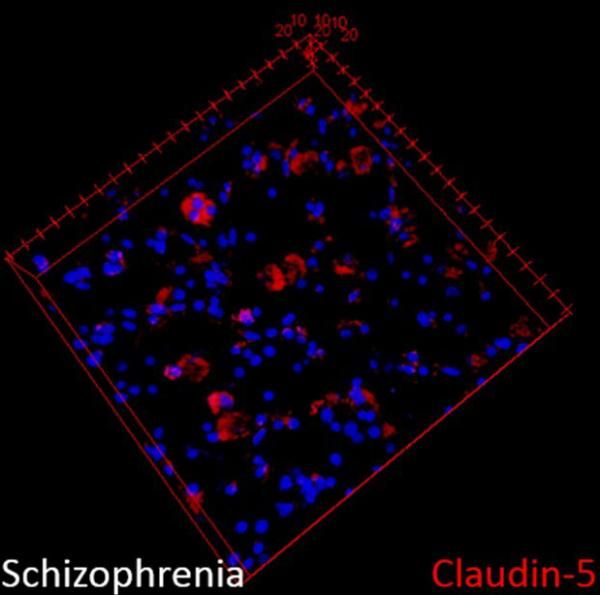
This is a human schizophrenia patient brain stained for blood-brain barrier (BBB) component claudin-5 (red).
Dr Matthew Campbell, Trinity College Dublin.
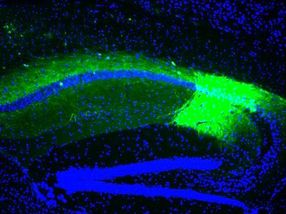
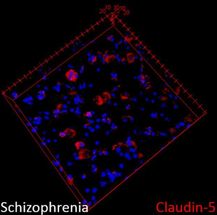
The network of blood vessels in the brain regulates the transport of energy and materials in and out of the brain -- forming what is known as the blood-brain barrier (BBB). Scientists working in the Smurfit Institute of Genetics at Trinity College Dublin and the Department of Psychiatry, RCSI, have discovered that abnormalities in the integrity of the BBB may be a critical component in the development of schizophrenia and other brain disorders.
The research was supported by the Health Research Board (HRB), Science Foundation Ireland (SFI) and the US-based charity, Brightfocus Foundation.
People living with a chromosomal abnormality termed '22q11 deletion syndrome' (22q11DS) are 20 times more likely to develop schizophrenia. These people lack approximately 40-60 genes within a small region in one of the pairs of chromosome 22. A gene termed "Claudin-5" is located within this region, and it is changes in the levels of this component of the BBB that are associated with the presence of schizophrenia.
Assistant Professor in Neurovascular Genetics at Trinity, Dr Matthew Campbell, said: "Our recent findings have, for the first time, suggested that schizophrenia is a brain disorder associated with abnormalities of brain blood vessels. The concept of tailoring drugs to regulate and treat abnormal brain blood vessels is a novel treatment strategy and offers great potential to complement existing treatments of this debilitating disease."
"While it is very well accepted that improving cardiovascular health can reduce the risk of stroke and heart attacks, we now believe that drugs aimed at improving cerebrovascular health may be an additional strategy to treating brain diseases in the future."
Working with an international group of scientists from Cardiff University, Stanford University and Duke University in addition to screening post-mortem brain samples from the Stanley Medical Research Institute, the scientists are the first to identify a molecular genetic component of the blood brain barrier with the development of schizophrenia.
Professor Kieran Murphy, Head of Department of Psychiatry, RCSI and Consultant Psychiatrist at Beaumont Hospital, said: "We have shown for the first time that dysfunction of the blood-brain barrier may be an important factor in the development of schizophrenia. These findings greatly add to our understanding of this debilitating and socially isolating condition."
Original publication
C Greene, J Kealy, M M Humphries, Y Gong, J Hou, N Hudson, L M Cassidy, R Martiniano, V Shashi, S R Hooper, G A Grant, P F Kenna, K Norris, C K Callaghan, M dN Islam, S M O'Mara, Z Najda, S G Campbell, J S Pachter, J Thomas, N M Williams, P Humphries, K C Murphy and M Campbell; "Dose-dependent expression of claudin-5 is a modifying factor in schizophrenia"; Molecular Psychiatry; 2017
